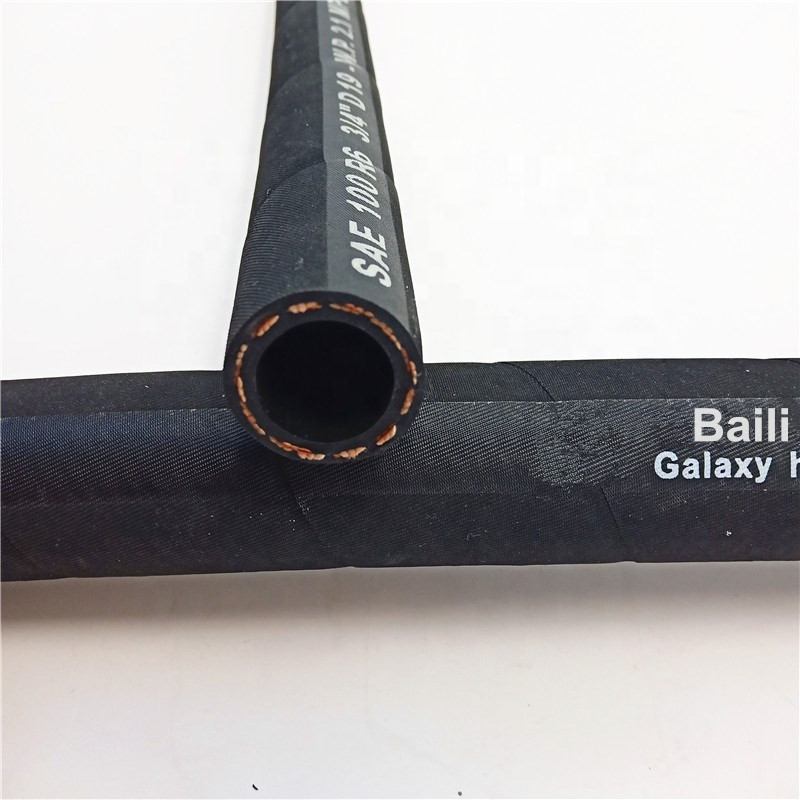Dec . 17, 2024 23:34 Back to list
Where to Purchase Quality Hydraulic Rubber Hoses for Your Needs
Understanding the Purchase of Hydraulic Rubber Hoses A Comprehensive Guide
Hydraulic systems are pivotal in various industries, from construction and manufacturing to agriculture and automotive. Central to the efficient functioning of these systems is the hydraulic rubber hose, which serves as a vital component in transferring hydraulic fluids. As industries continue to evolve and demand more advanced equipment, the necessity for purchasing high-quality hydraulic rubber hoses becomes paramount. This article delves into the considerations and best practices for buying hydraulic rubber hoses.
1. Importance of Hydraulic Rubber Hoses
Hydraulic rubber hoses are designed to withstand high pressures and extreme temperatures, making them indispensable in hydraulic applications. These hoses facilitate the movement of hydraulic fluids, allowing machines and equipment to perform various tasks, such as lifting, pushing, and powering different mechanisms. The right hose can enhance the performance of your hydraulic system, reduce downtime, and optimize efficiency.
2. Key Factors to Consider When Buying Hydraulic Rubber Hoses
When purchasing hydraulic rubber hoses, several factors must be taken into account to ensure you select the appropriate products for your needs
- Pressure Rating It is essential to choose hoses with a pressure rating that meets or exceeds the demands of your hydraulic system. Understanding the maximum operating pressure of your equipment will help you select the right hose.
- Temperature Resistance Hydraulic hoses are subjected to varying temperatures. Therefore, you should consider the operational heat levels. Ensure the hose material can withstand these temperatures without degrading or losing functionality.
- Inner Diameter The inner diameter (ID) of the hose affects the flow rate of hydraulic fluid. Choosing the right ID is crucial for achieving optimal performance; too small an ID can restrict flow, while too large can lead to a loss of pressure.
- Material Composition Hydraulic rubber hoses come in various materials, including synthetic rubber, thermoplastics, and more. Understanding the chemical compatibility between the hose material and the hydraulic fluid being used is vital for longevity and safety.
3. Sourcing Reliable Suppliers
buy hydraulic rubber hose

To ensure the quality and durability of the hydraulic rubber hoses, sourcing from reputable suppliers is crucial. Look for manufacturers with a solid track record and positive customer reviews. It can also be beneficial to seek suppliers that offer certifications and adhere to industry standards, such as ISO or SAE.
- Customization Options Some suppliers provide the option to customize hoses according to specific requirements, like length, fittings, or even branding. Customization not only meets your operational needs but also can enhance the professionalism of your equipment.
- Technical Support A good supplier should offer technical support to help you select the right hose. This includes providing guidance on hose selection, installation, and maintenance.
4. Cost Considerations
While cost should not be the only factor when purchasing hydraulic rubber hoses, it is an essential consideration. Balancing quality with affordability is key. Cheaper hoses may save you money initially, but they can lead to frequent replacements and increased downtime, ultimately costing more in the long run.
5. Installation and Maintenance Tips
Once you have procured the right hydraulic rubber hoses, proper installation and maintenance are critical to maximize their lifespan.
- Installation Follow the manufacturer’s guidelines for installation to prevent issues such as leakage or damage. Ensure that the hoses are not kinked or twisted during installation.
- Regular Inspections Conduct regular inspections of hoses for signs of wear, damage, or leaks. Early detection can prevent catastrophic failures and costly repairs.
In conclusion, purchasing hydraulic rubber hoses involves careful consideration of various factors, such as pressure rating, temperature resistance, and material composition. By sourcing from reputable suppliers and maintaining vigilant inspection and care, you can ensure the longevity and efficiency of your hydraulic systems, ultimately benefiting your operations and bottom line.
-
Best Four Steel Wire Spiral Hose Hydraulic R12 – Durable High-Pressure Hose Manufacturer
NewsJul.08,2025
-
High-Quality 1/4 Hydraulic Hose – Soft, Flexible & Durable Rubber Hoses for Industrial Use
NewsJul.08,2025
-
1 1 2 Inch Hydraulic Flexible Hose - Durable, Reliable, High-Pressure Solutions
NewsJul.07,2025
-
High-Quality 1 2 Rubber Hose - Durable, Flexible Hydraulic Solutions
NewsJul.07,2025
-
Discover SAE Hydraulic Hose Types - High Quality & Durable Hoses from Leading Factory Supplier
NewsJul.06,2025
-
High Pressure Wire Hydraulic Rubber Hose Supplier Durable & Reliable 1SN Hose Solutions
NewsJul.06,2025
